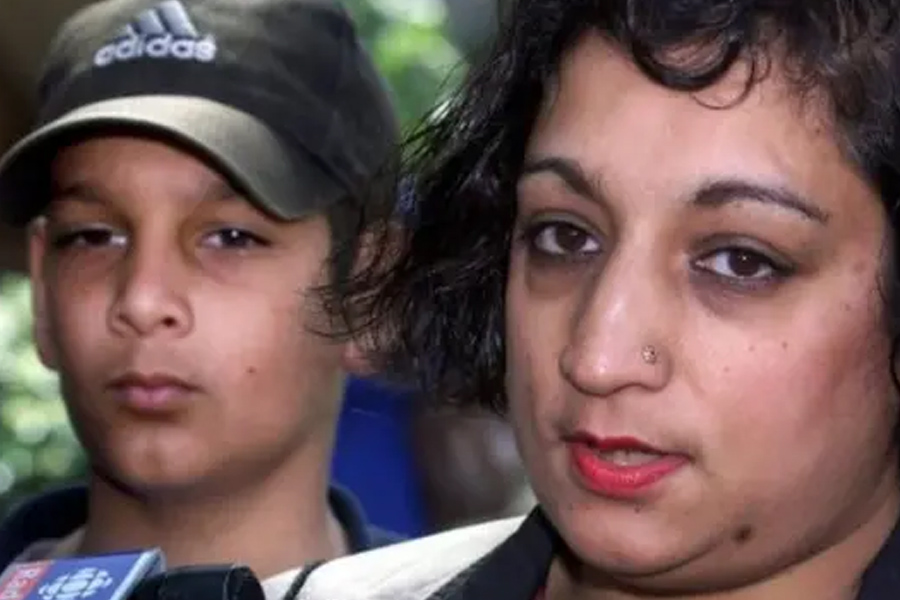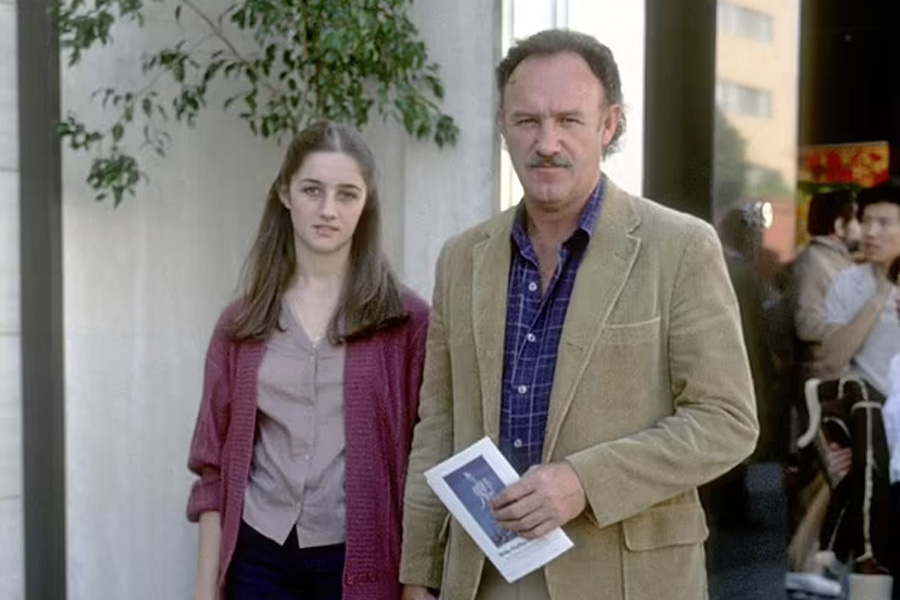Basic Information
| Field | Details |
|---|---|
| Full name | Rena (commonly recorded as “Reena”) Virk |
| Born | March 10, 1983, Canada |
| Died | November 14, 1997 (body found November 22, 1997), Saanich, British Columbia |
| Age at death | 14 |
| Heritage | Indo-Canadian (South Asian) |
| Family faith | Jehovah’s Witnesses |
| Community context | Raised in a predominantly Sikh South Asian area; described as a “minority within a minority” due to family’s faith |
| School | Colquitz Junior High School |
| Parents | Manjit Virk (father), Suman Virk (mother; died June 24, 2018) |
| Siblings | None documented |
| Notable for | Victim of bullying and peer violence; case that exposed issues of racism, social exclusion, and youth justice |
| Key legal outcomes | 6 girls convicted of assault (1998); Warren Glowatski convicted of second-degree murder (1999); Kelly Ellard (now known as Kerry Sim) convicted of second-degree murder (2000; reconvicted 2005; conviction upheld 2009) |
| Media and cultural impact | Book “Under the Bridge” (2005); Hulu miniseries “Under the Bridge” (2024) |
| Family legacy | Anti-bullying advocacy, restorative justice participation, public calls for empathy and prevention |
Early life and identity
Rena Virk grew up straddling lines that were hard for any 1990s teenager to walk: Indo-Canadian heritage, a Jehovah’s Witness household, and a school environment where difference could be a bullseye. Home was Saanich, British Columbia, where her parents, Manjit and Suman, balanced faith and work while their daughter wrestled with the twin storms of adolescence and belonging. She was self-conscious about her weight, stung by taunts, and lured by the promise of acceptance just beyond the circle that kept her out.
Like many teens, she pushed boundaries—cigarettes, marijuana, bending rules—in search of a crowd that would welcome her. In 1996, at 13, she made allegations of molestation against her father that led to months in foster care; the allegation was later retracted, and she returned home. The episode left its mark, deepening the chasm between a young person’s need to be seen and a family’s attempt to protect.
The night of November 14, 1997
On a damp Friday near Saanich’s Craigflower Bridge, Rena went to meet peers she hoped would be friends. Instead, she was swarmed, beaten, and terrorized—a violent initiation that exposed the darkest currents of youth group dynamics. Later that night, away from the group, she was attacked again and drowned. She was fourteen. Eight days later, on November 22, 1997, her body was recovered from the Gorge Waterway.
The brutality shocked Canada. It wasn’t just the murder; it was the context—bullying, racism, adolescent cruelty—that made the case a mirror no community wanted to hold.
Courtrooms, sentences, and reckoning
In 1998, six girls were convicted of assault related to the initial beating, drawing sentences that ranged from 60 days to a year. In 1999, Warren Glowatski was convicted of second-degree murder and sentenced to life with parole eligibility after seven years. The following year, Kelly Ellard was convicted of second-degree murder; after an overturning and mistrial, she was reconvicted in 2005, and the Supreme Court upheld the conviction in 2009.
The case wound through the courts like a long winter—appeals, retrials, parole hearings—each phase reopening wounds. Over time, Glowatski engaged in restorative justice with Rena’s parents and was eventually granted day parole in 2007 and full parole in 2010. Ellard, who later became known as Kerry Sim, saw more turbulent parole chapters in the 2010s and 2020s.
A family’s public grief and private strength
In the painful public glare, Manjit and Suman Virk chose a path at once surprising and deeply principled. They spoke about bullying and bigotry. They participated in healing circles. They advocated for prevention over retribution. Suman did something few could imagine: she forgave. Her calm, measured compassion became a north star in a storm many thought would never pass.
Manjit’s 2008 book, “Reena: A Father’s Story,” wrestled with systems—child protection, youth justice—that he believed had failed his daughter. The family’s legal actions against government bodies and others signaled not only grief but a demand for accountability. Behind the microphones and court filings stood a basic plea: make this less likely to happen again.
Suman’s sudden death on June 24, 2018, at 58, was felt far beyond Saanich. She had come to embody the idea that humanity can survive even the worst loss. Those who heard her forgive did not forget it.
Timeline highlights
| Date | Event |
|---|---|
| March 10, 1983 | Rena (Reena) Virk is born in Canada. |
| 1996 | Alleges molestation against father; placed in foster care; later retracts; returns home. |
| November 14, 1997 | Assaulted near Craigflower Bridge; drowned later that night. |
| November 22, 1997 | Body found in the Gorge Waterway. |
| April–May 1998 | Six girls convicted of assault. |
| June 1999 | Warren Glowatski convicted of second-degree murder. |
| March 2000 | Kelly Ellard convicted of second-degree murder (overturned 2003; mistrial 2004; reconvicted 2005). |
| 2005 | “Under the Bridge” by Rebecca Godfrey published. |
| 2007–2010 | Glowatski granted day parole (2007) and full parole (2010) after restorative justice. |
| 2008 | Manjit Virk publishes “Reena: A Father’s Story.” |
| 2009 | Ellard’s conviction upheld by the Supreme Court. |
| June 24, 2018 | Suman Virk dies of a heart attack at 58. |
| 2024 | Hulu miniseries “Under the Bridge” reignites national attention. |
| 2025 | Kelly Ellard, now known as Kerry Sim, has day parole revoked in July following breaches earlier in the year. |
Culture, policy, and the long tail of a short life
Rena’s name became a shorthand for hard conversations: racism threaded through adolescent hierarchies; the dynamics of swarming assaults; the tendency to downplay teen cruelty until it is too late. Schools and community groups used the case as a catalyst for anti-bullying programming. Police and social services examined their blind spots. The justice system’s slow grind—acquittals overturned, mistrials, reconvictions—shaped public understanding of how complex major youth-involved cases can be.
Her story also entered the cultural bloodstream. A landmark work of reportage in 2005, and a 2024 miniseries that brought the case to new audiences, ensured that this was not a tragedy confined to one bridge in Saanich. It became an ongoing seminar—uncomfortable but necessary—on how social exclusion can metastasize into violence.
Recent updates
As of mid-2025, attention returned to parole oversight of one of Rena’s killers. Kelly Ellard, now known as Kerry Marie Sim, had her day parole revoked in July 2025, following earlier breaches and concerns around substance use and risk. In hearings, statements of remorse coexisted with assessments warning of instability—a reminder that justice does not end at sentencing, and that supervision, rehabilitation, and public safety form a fragile triangle.
The Virk family’s lasting influence
If Rena’s life was a match blown out too soon, the light after came from her parents. They spoke to students and legislators, showed up in healing circles, and tempered outrage with grace. Their lawsuit against authorities was about systems, but their advocacy was about people: seeing each child, hearing each warning sign, building communities where difference is not a danger.
In that work, they reframed a national tragedy into a call to care. The family kept private lives private—no need to relive their worst day—yet their courage made it possible for others to tell the truth about bullying, racism, and the terrifying speed with which a rumor can become a crime scene.
FAQ
Why is she listed as “Rena” and also “Reena”?
Both spellings appear in public records and media; “Reena” became common usage, though “Rena” is also used.
What happened on November 14, 1997?
Rena was swarmed and beaten by a group of teens near Craigflower Bridge and later drowned by two individuals.
Who was convicted of her murder?
Warren Glowatski and Kelly Ellard (later known as Kerry Sim) were convicted of second-degree murder in separate proceedings.
Were others convicted in the case?
Six girls were convicted of assault in 1998 for their roles in the initial attack.
What role did her family play afterward?
Manjit and Suman Virk became anti-bullying advocates and participated in restorative justice, emphasizing prevention and empathy.
Did the case influence media and culture?
Yes; it inspired a significant nonfiction book in 2005 and a Hulu miniseries in 2024, sustaining public dialogue.
What are the latest parole developments?
In July 2025, the Parole Board revoked day parole for Kelly Ellard (Kerry Sim) following breaches and risk concerns.
How is her mother remembered?
Suman Virk is remembered for public forgiveness and compassionate advocacy before her death in 2018.



